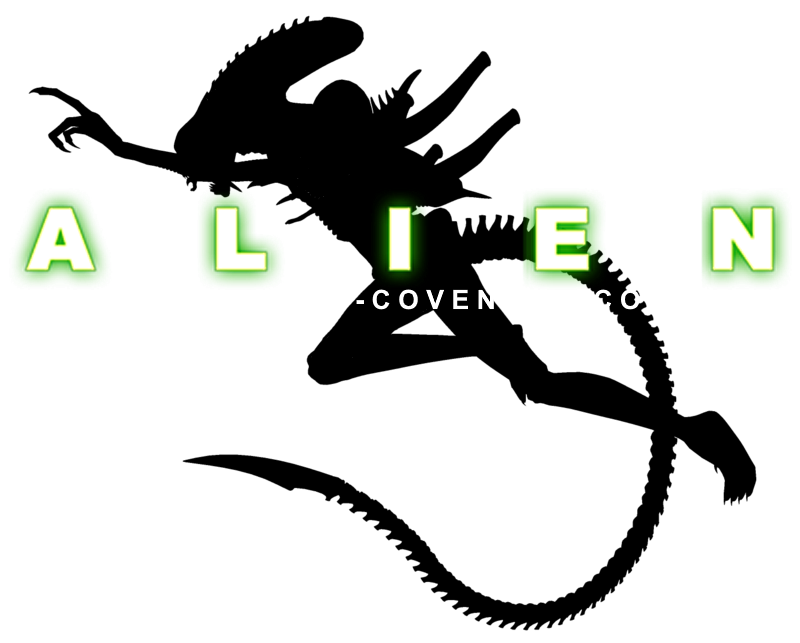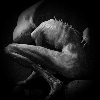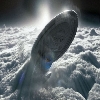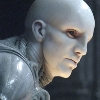Qubism
MemberFacehuggerApr-28-2017 1:32 PMNot many Sci Fi films encourage us to delve into the greats of 19th Century English Literature. In an IGN interview Ridley drops this goo bomb on us:
"At one point David is asked who wrote Ozymandias and he gets it WRONG"
Ridley says an AI (synthetic, android, auton etc.) should not get things wrong and if David gets this simple question wrong, it must be akin to madness for an AI....
So, we should all know who wrote this sonnet so we realise and understand the relevance when David gets it wrong in the movie.....(I didn't know there was homework to do BEFORE we see the movie..... I hope there isn't a test too)
Percy Bysshe Shelley wrote this sonnet in 1818. At this time, members of Shelley’s literary circle would sometimes challenge each other to write competing sonnets/stories.
The result of one such competition between Lord George Gordon Byron, John Polidori, Shelly and his wife Mary was another Great British Sci Fi story. They were trying to think of the best horror story. After thinking for days, Mary Shelley dreamt about a scientist who created life and was horrified by what he had made....
This dream became a novel called:
Frankenstein; or, The Modern Prometheus (!)
....this does make us think about what the engineers thought about us.... and what humans thought about David...
Back to Ozymandias.....Percy Shelley and Horace Smith (in another poetry slam) both chose a passage from the writings of the Greek historian Diodorus Siculus, which described a massive Egyptian statue and quoted its inscription: "King of Kings Ozymandias am I. If any want to know how great I am and where I lie, let him outdo me in my work." In the poem Diodorus becomes "a traveller from an antique land."
In antiquity, Ozymandias was a Greek name for the Egyptian pharaoh Ramesses II, who ruled from 1279 BCE to 1213 BCE, in the 19th Dynasty of Ancient Egypt. Shelley began writing his poem in 1817, soon after the announcement of the British Museum’s acquisition of a large fragment of a statue of Ramesses II from the thirteenth century BC, leading some scholars to believe that Shelley was inspired by this. The 7.25-ton fragment of the statue's head and torso had been removed in 1816 from the mortuary temple of Ramesses at Thebes.
Here is the Sonnet:
Percy Shelley's "Ozymandias"
I met a traveller from an antique land
Who said: Two vast and trunkless legs of stone
Stand in the desert. Near them, on the sand,
Half sunk, a shattered visage lies, whose frown,
And wrinkled lip, and sneer of cold command,
Tell that its sculptor well those passions read
Which yet survive, stamped on these lifeless things,
The hand that mocked them and the heart that fed:
And on the pedestal these words appear:
'My name is Ozymandias, king of kings:
Look on my works, ye Mighty, and despair!'
Nothing beside remains. Round the decay
Of that colossal wreck, boundless and bare
The lone and level sands stretch far away
The central theme of "Ozymandias" is contrasting the inevitable decline of all leaders and of the empires they build with their pretensions to greatness. (Sir Peter Weyland for sure).
So, equipped with this knowledge, adding to the rich tapestry of Ridley's story, now we're ready for Oven Can't!
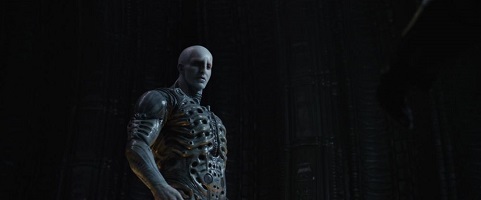
Cerulean Blue
MemberFacehuggerApr-28-2017 1:41 PM'A king has his day, then he dies. It is inevitable.'

Cerulean Blue
MemberFacehuggerApr-28-2017 1:50 PM@Qubism - Thanks for pointing this out for us all!
I will be keeping a very cautious eye on our good friend David!
Qubism
MemberFacehuggerApr-28-2017 2:00 PMWell David has had a lot of time to read..... but so much time alone with no servicing, bug patches or software upgrades. Perhaps he is going a little bit crazy from isolation (as a human might too in similar prolonged isolation....)

Ingeniero
MemberPraetorianApr-28-2017 3:03 PMGreat terminology and background work on Ozymandias Qubism.
We have also seen Mary Shelley's Frankenstein quoted by Walter in the viral material.

Tom
MemberFacehuggerApr-29-2017 3:00 AMLearn from me, if not by my precepts, at least by my example, how dangerous is the acquirement of knowledge and how much happier that man is who believes his native town to be the world, than he who aspires to become greater than his nature will allow...
-Mary Shelley (FRANKENSTEIN)
he says the first bold part in that first teaser
Qubism
MemberFacehuggerApr-29-2017 3:17 AMWow I remember that line and thinking, well that's a bit of a strange thing to say....
I had no idea it was from Frankenstein so thanks for the info guys...
HWMurphy84
MemberOvomorphMar-14-2019 7:46 PMDavid is above trivia because it’s trivial u can theorize he purposely answered the question wrong because it’s something a great deal a even humans may answer... they are sizing each other up as in chess and David just scarified an unorthodox play to win the rest of there battles .... Walter acts rather HUBRIS after that from there on out ironically the moral of the sonnet

dk
MemberTrilobiteMar-14-2019 7:50 PMWhat better way to be more human like than to make mistakes and be wrong about things from time to time? Is it bad programming or by design?

hox
MemberFacehuggerApr-11-2019 8:38 PMFaulty hardware, I’d say, after many decades of operation. The neutral power cable to my house burned out a while back. Since then, my Apple TV intermittently forgets what it’s doing. Knackered. I got a replacement in the end. David’s ‘brain’ is not a perfect design. It probably has marvellous self-repair mechanisms, but damaged memories are damaged memories. And when one note is off...
NB, that’s a theme covered in another Scott film: Hannibal. Lecter winces visibly when a member of the orchestra plays a few duff notes.
